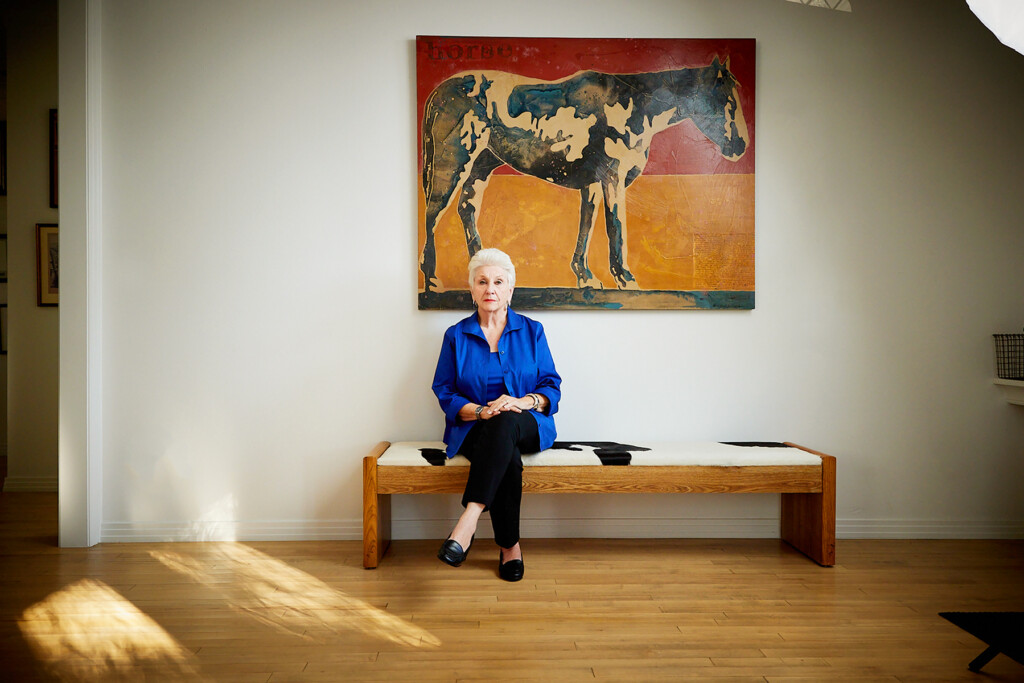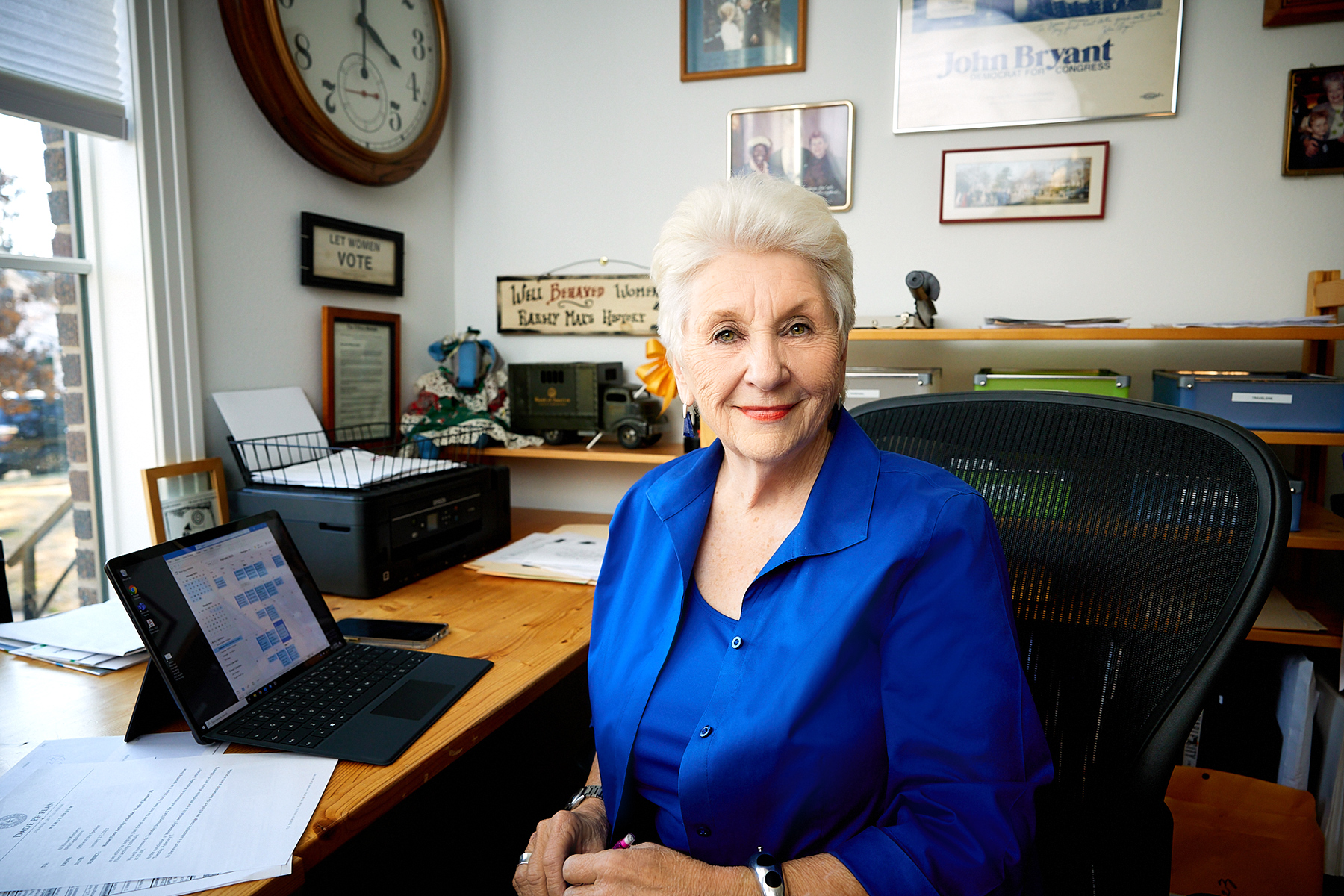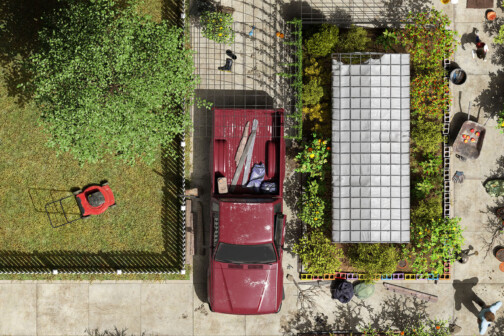But for the spread of cheese and crackers and a light insistence on my acceptance of a glass of sweet tea, the table inside Norma Minnis’ East Dallas home could have been arranged for an interrogation. Minnis, 78, and two of her neighbors, Olive Talley and Greg Estell, look at me skeptically, eager to learn my intentions.
Things have become tense on their block. A dozen yards have red signs that read “Homes Not Hotels” and “Neighborhoods Are For Neighbors.” Talley lives four houses down from an Airbnb; she and the property owner have traded code complaints. Another Airbnb owner sent a cease-and-desist letter to a neighbor to get that person to stop filing noise complaints on the rental.
The three at Minnis’ table want me to know: they are not NIMBYs. Some among their ranks might have gray hair, but they are not gray hairs. They think this quiet area on the edge of Lakewood is under attack, just like most other neighborhoods across the city.
Dallas has quietly allowed Airbnbs and VRBOs to operate in residential neighborhoods, and Minnis and her ilk have spent the past three years consolidating their opposition. A zoning vote that would kill short-term rentals in single-family neighborhoods is expected to come before the City Council prior to the May council elections. (Five council members recently sent the city manager a memo demanding that the vote be placed on the April 11 agenda.)
Minnis and her allies say that short-term rentals—defined by the city as a dwelling rented out for 30 days or fewer—are commercial businesses that operate illegally in residential neighborhoods and should be zoned out. They are not subject to city inspection, because they don’t have to be registered with the city’s rental home registration program. The Department of Code Compliance doesn’t work after dark or on Saturdays and Sundays, and the Dallas Police Department doesn’t have the bodies to prioritize breaking up a house party.
Minnis and her crew have more anecdotes demonstrating the problem than they probably need. In Lake Highlands, two men were caught on camera sauntering down an alley holding rifles after a neighbor knocked on the door of their short-term rental. In West Oak Cliff, there was a drive-by shooting on New Year’s Eve. In Winnetka Heights, a Parkland doctor was forced to move his family because of constant disruptions from his ever-changing neighbors. In Plano, a brothel. Practically everywhere, party buses.
Minnis stands a few inches over 5 feet tall and has a tidy white ’do that sits above her ears. But do not underestimate her. She is one of this city’s most effective organizers and has been for more than four decades. And she couldn’t be more clear about the crux of the conflict. “We own the water,” she says of her desirable neighborhood, “and everybody else wants it.”
Talley is a documentarian and former Dallas Morning News reporter. She is adept at delivering narrative, balancing data with the details of people’s experiences. By the end of our conversation, she will fight back tears of frustration as she describes the anxiety of wondering what every weekend will bring while reflecting on the hundreds of hours she’s invested trying to find solutions.
Some among their ranks might have gray hair, but they are not gray hairs.
Estell is a retired tech executive who has worked with third-party companies to track how many short-term rentals are actually operating in Dallas. He joined this fight partly because he couldn’t sit still after retiring. He has found that the city contractor in charge of registering short-term rentals reports that there are 1,439 properly registered and active, and about 1,200 “possible” locations that aren’t registered and aren’t paying any taxes. Minnis and her crew say they believe there are actually more than 6,000, citing listing data from short-term rental tracking websites like AirDNA.
Minnis’ husband sits within earshot in the living room, reading a newspaper as his wife details her decades of activism. Back in the ’80s, she’d go door to door with Mary Nash, her late friend and co-conspirator, leaving leaflets—they called it Hot News—that included a description of whatever she was fighting and the contact information for public officials to pressure. Today that organizing and strategizing is done through emails and at meetings held at her white oak dining table, which bathes in natural light spilling across the room.
She moved onto this block of Prospect Avenue in 1977, buying a redbrick English Tudor next to where she lives now. She was in her early 30s. Longtime city columnist Jim Schutze, who lives nearby and was a reporter with the Dallas Times Herald when Minnis moved to the block, recalls that City Hall looked at East Dallas as a slum, a decaying mix of rental properties and a place to stick roads that would shuttle workers downtown and back to their suburban homes. Minnis and others advocated for down-zoning much of East Dallas, which eliminated many of the fourplexes and returned areas such as Swiss Avenue and Mount Auburn back to majority single-family neighborhoods. And then they really went to work.
One day, Dorothy Savage—wife of Mayor Wallace Savage and mother to the late historian Virginia Savage McAlester—knocked on Minnis’ door and informed her that the city planned to bulldoze a row of houses in the block behind Prospect.
“My life changed forever,” Minnis says.
The city was working on key pieces of its thoroughfare plan. Minnis says that few outside of developers and city officials even knew the plan existed. Nash and Minnis made themselves furniture at the old City Hall, attending every public meeting they could, creating relationships with staffers who filled them in on transportation plans, which Nash and Minnis in turn set about destroying.
This was how they discovered the Crosstown Expressway, a planned concrete swath from Maple Avenue all the way to Interstate 30. That project would have demolished 51 homes in Little Mexico and displaced about 180 families in East Dallas, according to news reports from the time. Minnis and Nash leaked information to the press and got hundreds to call elected officials. They went to war with Dallas’ elected officials and its largest developers—including Trammell Crow—and they won. They did the same thing with the Roseland Parkway, which would have shot six lanes off Woodall Rodgers up to Greenville and Richmond avenues.
Minnis eventually became the district director for former congressman and current state Rep. John Bryant. Early in his career, he fought the double-decking of Central Expressway, which was “the consensus of all the big shots in town and the city planners,” he says. With help from the neighborhoods, Central was buried instead of decked.
“Norma and the people she works with are watching all the time,” Bryant says. “They see it starting early, and they try to stop it early. If you wait, you won’t be able to stop it.”
Minnis’ most powerful tool is zoning. For her, short-term rentals look a lot like the highways she killed. She believes they don’t belong where they are operating. Her councilman, Paul Ridley of District 14, shares the same sentiment, and his plan commissioner, Melissa Kingston, is perhaps the body’s most outspoken supporter of adjusting this land use.
In the coming months, the Dallas City Council will vote. Ridley believes there will be consequences either way. He says, “It’s important that this issue come to a decision before the election so that residents in Dallas can hold our elected officials accountable for their decisions.”
Airbnb owners don’t think they should be zoned out of single-family neighborhoods. Instead, higher registration fees could pay for more code enforcement to cut down on nuisance houses and crime while generating more hotel tax revenue for the city. They view their short-term rental properties as assets that allow tourists and out-of-town workers to experience a part of Dallas they might not otherwise visit. David Noguera, the city’s director of housing and neighborhood revitalization, told the City Plan Commission that he believes they are an important piece of the city’s housing mix. Short-term rentals can serve as a bridge for future Dallasites who are looking for a more permanent place to live and give retirees another revenue stream that could help them cover their property taxes.
Minnis says, Fine, but not in residential neighborhoods. She believes the City Council will listen. And for those who doubt her strategy, she happily points to the green road sign that she keeps in her office as proof of her past success. It reads: CROSSTOWN EXPRESSWAY.
This story originally appeared in the March issue of D Magazine with the headline, “The Boss of East Dallas.” Write to [email protected].
Get the D Brief Newsletter
Author








